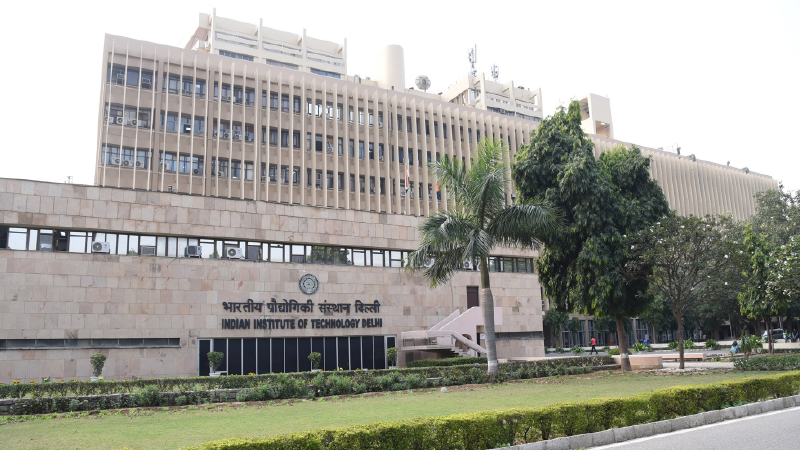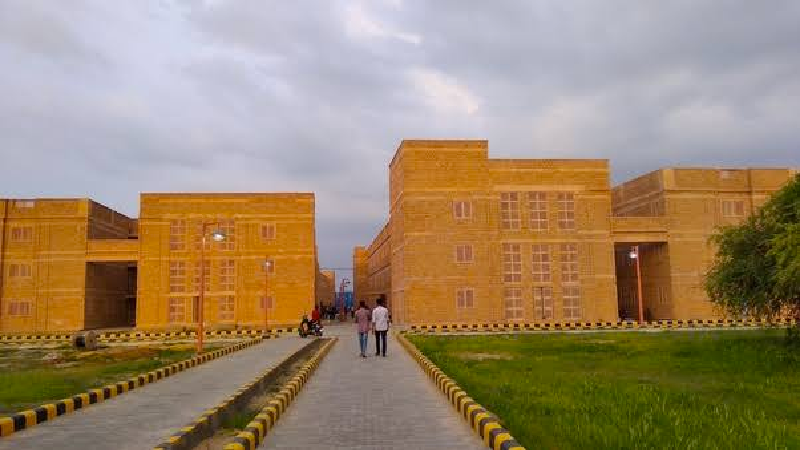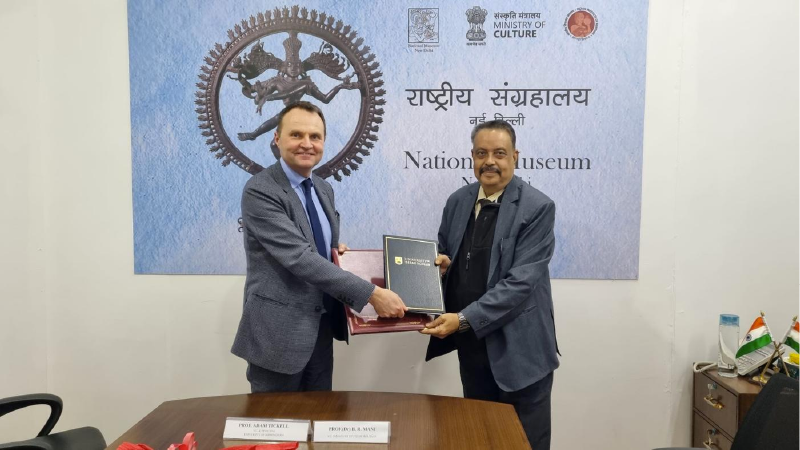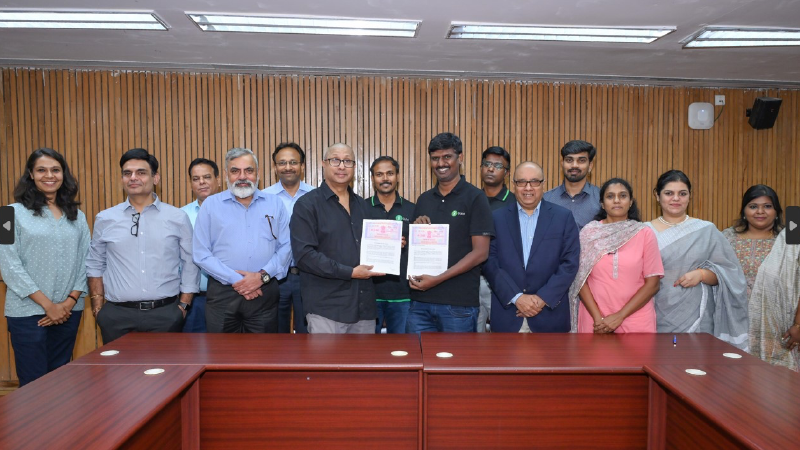Trending Now
Thursday, Nov, 2024
Home / IIT Delhi Researchers Developed Modified Cotton To Absorb Harmful Air Pollutants
IIT Delhi Researchers Developed Modified Cotton To Absorb Harmful Air Pollutants
The research team from IIT Delhi has developed a modified cotton fabric that can adsorb harmful air pollutants from air...
 by Sukanya Prabhakar /
by Sukanya Prabhakar /  28 Aug 2021 16:36 PM IST /
28 Aug 2021 16:36 PM IST /  0 Comment(s) / 509
0 Comment(s) / 509

Image Courtesy : www.facebook.com/IITDelhi
The research team from IIT Delhi has developed a modified cotton fabric that can adsorb harmful air pollutants from air. The team was led by Prof. Manjeet Jassal and Prof. Ashwini K. Agrawal at the SMITA Research Lab in the Department of Textile and Fibre Engineering, and Prof. Saswata Bhattacharya from the Department of Physics.
The Department of Science and Technology in collaboration with GoI and Resil Chemicals Pvt Ltd., Bangalore under the Nanomission has jointly funded the research.
The modified fabric known as ZIF-8@CM Cotton and ZIF-67@CM Cotton are ZIF (Zeolite Imidazolate Framework)-modified functionalized fabrics. The fabric can absorb high levels of organic air pollutants like benzene, styrene, and aniline from the ambient air.
Air pollution emerging from the rising levels of particulate matter, sulfur oxides, nitrous oxides, carbon oxides, and other toxic VOCs (Volatile Organic Compounds) is a grave concern. A long-term vulnerability to these chemicals damages health and can cause eye, and throat irritations, asthma, etc.
According to Mr. Hardeep Singh, a research scholar who executed detailed experiments for the development of these fabrics, said that the porous materials such as zeolites, activated carbon, and MOFs (Metal Organic Frameworks) can adsorb VOCs from air. The MOFs can be adjusted to create textiles that have biomedical, antimicrobial, particulate matter filtering, chemical warfare protecting, UV radiation absorbing, and fuel filtering properties. Under Indian conditions, the ZIFs specifically are more useful.
The IIT-Delhi researchers have developed a low-cost cotton fabric by using the technique called in-situ growth of ZIF-8 and ZIF-67 nanocrystals on the carboxymethylated cotton fabric through a rapid water-based textile finishing application. The fabric can absorb 400 to 600% more VOCs than other ordinary cotton fabrics.
Moreover, the fabrics are robust and can tolerate even the tough washing conditions. The fabric can be used repeatedly and to design functional filters and pollution controlling upholstery fabrics and similar things.
The ZIF functionalized fabric acquires a great potential for applications such as in controlling indoor air pollution and protective garments. These fabrics can also be used as upholstery to control gaseous pollutants that are heard to filter out using a filter media. In particular, this can be used within closed spaces, such as homes, theatres, offices, aircrafts, and other transport vehicles, added Prof. Ashwini.

EShort / February 16, 2024
IMS Noida Admissions 2024: Apply for UG, PG programmes

EShort / February 16, 2024
GATE 2024: Response sheet out

EShort / February 16, 2024
BSSTET 2023: Admit card released

EShort / February 16, 2024
NID DAT 2024: Prelims result released

EShort / February 16, 2024
IIT JAM 2024: Response sheet released

Jobs / February 16, 2024
UPSC Recruitment Drive 2024: Apply for 120 vacancies in various departments

EShort / February 14, 2024
UPSC CSE 2024: Official Notification issued; application process begins

Editor's Desk / April 17, 2020
How Does Society Impact Our Education?

Current Affairs / April 22, 2020
Mr. Sudarsanam Babu appointed to U.S. Science Board.

Reforms / April 17, 2020
Traditional Structure of Education In India
.jpg)
Events & Seminars / April 17, 2020
PISA!!

Blog / February 26, 2021
Government's Action On #ModiRojgaarDo

EShort / May 19, 2022
CUET PG 2025 has started the registration process.

Notice Board on Important Dates / April 21, 2020
World Heritage Day

News / July 08, 2021
JEE Mains Registration For Session 3: Last Date To Apply

EShort / December 14, 2021
UPSC Declared Final Result For DCIO Recruitment


























0 Comments
Post Comments